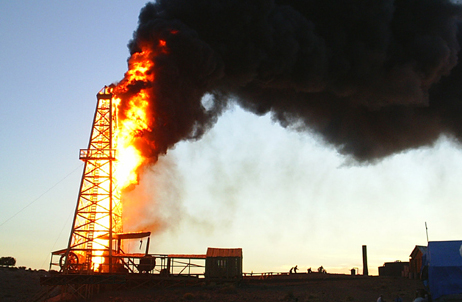Writte by Allan Loeb
“Things We Lost in the Fire” was one of those famous “best unproduced scripts” floating around for quite some time, and it’s easy to see why. Allan Leob’s writing debut (he now has a slew of stuff coming out) is a tight, effective drama, and a potential actors’ showcase of the highest order. It’s awfully confusing that it was ever in development hell. It’s a perfect Oscar contender, reads like a critics’ darling and even though it occasionally does read a little been there, done that, its sincerity and characters manage to help it overcome most of the expected clichés.
The story is broken into four segments: the seasons. We start in summer, watching the Burke family, comprised of Steven Burke (to be portrayed by David Duchovney) and wife Audrey (Halle Berry), and their two children, Harper and Dory, return from a summer vacation. It’s a happy family, and one with a good marriage at its core. The only real issue is Steven’s friendship with childhood best friend Jerry (Benicio Del Toro), a heroin user for as long as most people can remember. Steven remains his only real friend, and Jerry adores Steven for it.
Needless to say, and I don’t feel it’s a spoiler since the trailer gives it away, tragedy befalls Steven. A desperate Audrey offers Jerry a place to stay in their home, if he gets his act together. She tells him that he was her husband’s secret, and it’ll help her grieve to know more about him. The rest of the script follows Jerry kicking the habit to take care of this second chance he’s been given, while Audrey slowly but surely begins coming to terms with her husband’s death.
There’s a lot to like about this screenplay. For starters, the issue of vengeance upon Steven’s killer is never once mentioned. It can be an obnoxious cliché and it ruins a good many dramas when it is brought into the equation. Audrey, her children and Jerry are all wonderful crafted characters. They avoid indie film pratfalls and melodramatic Oscar screaming, and the result could be a movie that earns all the emotions it evokes from its audience – an increasing rarity in today’s Oscar season.
On a side note, allow me to celebrate the ethnically diverse casting for the film. I imagine Halle Berry sighed quite the sigh of relief when she got the part. Maybe now she’ll turn her career around after a slew of extremely poor choices. If you look at her work since “Monster’s Ball,” it’s almost all embarrassing (save for, maybe, TV’s “Their Eyes Were Watching God”). This is a great, baity role for Berry. She never really gets to unleash the hysterics you might expect from such a part, but she does get plenty of great scenes.
And when you have an actress with great material, you could do a lot worse than putting her opposite Benicio Del Toro. This will be Del Toro’s first performance since his extended cameo in “Sin City,” and it’s another strong choice for the actor. Like Berry, it’s a baity role if ever there was one. It’s the kind of part Del Toro can devour in his sleep.
I’ve never seen any of Susanne Bier’s work, but this will be her first English language film. Forgive me for being skeptical, but the trailer does not inspire my confidence in her. Mainly because scenes such as Del Toro and Berry nearly kissing or cuddling in bed never take place in the draft I read. They seem a little too forced and typical from where I’m sitting. Early word on the film seems to indicate such alteration is still in the same vein as the screenplay, so fingers crossed it won’t smack of Oscar desperation.
Overall, “Things We Lost in the Fire” is certainly one to watch this fall, particularly for its two lead performances. Leob’s written quite the delicate debut, and I hope to see him continue on this path and get better and stronger from here on out. An Oscar nomination for his debut certainly would help, and it would be well deserved.

